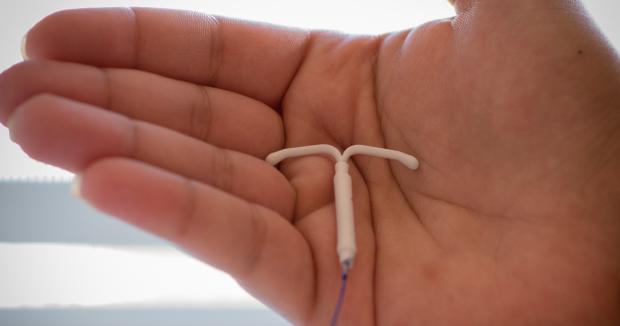I Have a Chronic Illness and Birth Control Changed My Life

How the Mirena IUD saved me from endometriosis.
When I was 14, my periods started getting bad. I got cramps so intense it felt like my uterus was trying to claw its way out through my pelvis. Sometimes the pain was so bad I threw up. When my period came it was like that scene from the movie Carrie. Bleeding through a super tampon within hours was a daily occurrence. And sometimes my periods lasted for 10 days or more. (If this is the case for you, make an appointment at your nearest The Right Time health center.)
My mother knew that these weren’t normal periods, so she brought me to multiple doctors. They all downplayed my symptoms. Each wrote a prescription for a different kind of birth control, insisting that this time, this birth control would be the answer. None of them gave me relief from my terrible periods. But I kept trying whatever was prescribed to me.
In my mid-twenties I started experiencing gastrointestinal problems. After two years of seeing doctors and testing that provided no answers, I decided to do my own research. I typed “GI problems and bad periods” into Google. The first result was a site about endometriosis. I read everything I could find, and all my symptoms lined up with the symptoms of endometriosis. I also learned other things I was experiencing were associated with endometriosis, like unexplained pelvic pain throughout the month, pain during sex, and vaginal spasms.
I was referred to a gynecologist that specialized in endometriosis. When I described my symptoms, she said they fit with endometriosis. She spent a long time talking to me about my treatment options. She made it clear that endometriosis is chronic and cannot be cured, but many people experience relief from their symptoms by going on the right hormonal birth control.
I went through my long history of birth control experimentation and she listened attentively. When I was done, she told me that she would recommend a type of hormonal birth control that none of my previous doctors had suggested—the Mirena IUD.
I was nervous about having a device implanted in my uterus, especially since I experienced pain when anything was inserted in my vagina. But she gave me a ton of information about why she thought the Mirena IUD would be the best choice for managing my symptoms and suggested we give it a try.
I won’t lie, the IUD insertion hurt a lot, and I experienced about a week’s worth of awful cramps. But after that week was over, I felt fine. When I got my period for the first time after getting the IUD, it was the first normal period I’d ever had. The cramps were barely noticeable. I wasn’t nauseated. I got through the shortest period of my life with normal tampons, not supers. My GI symptoms started to improve, and I didn’t have pain throughout the month. And there was the added benefit of not having to worry at all about my birth control method. I knew I wasn’t ready for kids, and the IUD made it so I never had to think about how I was going to prevent pregnancy.
The Mirena IUD made my life livable.
Unfortunately, the story of me and my endometriosis doesn’t end there. My disease progressed, and I got so sick that I wasn’t functional. My doctors suggested that I get surgery to remove the endometriosis, which I did.
Since then I have been healthier than ever before. I’m now pregnant with my first child. And while I’m in the delivery room, I plan to have the Mirena IUD inserted again because I’ve never been happier with a birth control method in my life.
Updated February 2021
Related Content


Article
What Does “Dual Protection” Birth Control Mean?It usually means using a condom along with another birth control method.

Article
January is Cervical Cancer Awareness Month: What to Know About HPV and ScreeningA positive HPV test can feel scary, but healthcare providers at your nearest The Right Time clinic can help.

Article
Own Your Well-Being in 2026 with These 3 Sexual Health ResolutionsFirst: prioritize preventative sexual and reproductive health care.



















